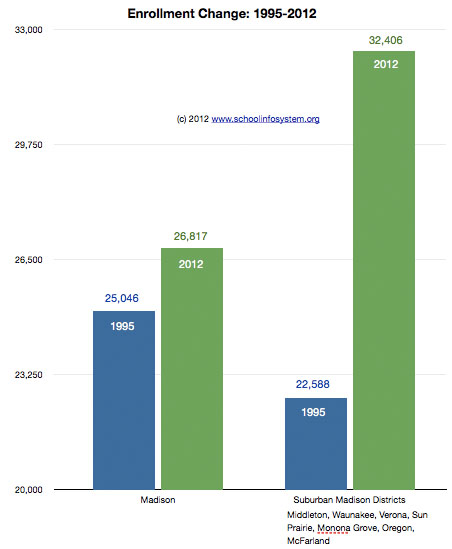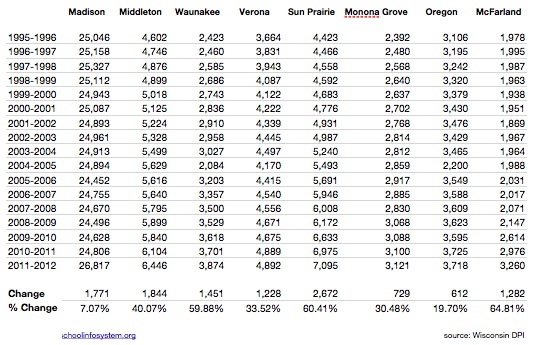Phyllis Fletcher:
The Washington State Auditor told the district this week it has problems managing its money. They’re the same problems he’s told them about before. The school board oversees the district. And auditors for the state say it’s time for board members to get more involved.
Carr: “To the State Auditors’ point, we have work to do. And they’re right: we do.”
Sherry Carr chairs the audit and finance committee of the Seattle School Board. She says the board needs to do more to make sure problems that are found in audits don’t pop up again.
Carr: “We haven’t always had the check in prior to the start of the next audit. So, I think that’s the key.”
Washington State Auditor’s Office:
The Washington State Auditor’s Office released an audit report this week about the Seattle School District’s accountability with public resources, laws and regulations.
We found the School Board and the District’s executive management:
* Must improve oversight of District operations.
* Are not as familiar with state and federal law as the public would expect.
We identified instances of misappropriation and areas that are susceptible to misappropriation. We also found the School Board delegated authority to the Superintendent to create specific procedures to govern day-to-day District operations.
The Board does not evaluate these procedures to determine if they are effective and appropriate. Consequently, we identified 12 findings in this report and in our federal single audit and financial statement report.
Documents:
- Complete Report: 700K PDF
- Complete Report: 700K PDF
- Washington State Auditor’s Office Accountability Audit Report 190K PDF
- The Seattle School District’s response 37K PDF:
Seattle Public Schools establishes rigorous process for addressing financial year 2008-09 audit findings.
As part of the Washington State Auditor’s Office annual audit process, an Accountability Audit of Seattle Public Schools was issued on July 6, 2010. The audit’s emphasis on the need for continued improvement of internal controls and District policies for accountability is consistent with multi-year efforts under way at Seattle Public Schools to strengthen financial management.
“Because we are deeply committed to being good stewards of the public’s resources, we take the information in this audit very seriously,” said Superintendent Maria L. Goodloe-Johnson, Ph.D. “We acknowledge the need to take specific corrective actions noted in the report. It is a key priority to implement appropriate control and accountability measures, with specific consequences, for situations in which policies are not followed.”
The School Board will work closely with the Superintendent to ensure corrections are made. “We understand and accept the State Auditor’s findings,” said School Board Director Sherry Carr, chair of the Board’s Audit and Finance Committee. “We accept responsibility to ensure needed internal controls are established to improve accountability in Seattle Public Schools, and we will hold ourselves accountable to the public as the work progresses.”
Much more on the Seattle School Board.
After reading this item, I sent this email to Madison Board of Education members a few days ago:
I hope this message finds you well.
The Seattle School Board is going to become more involved in District operations due to “problems managing its money”.
http://kuow.org/program.php?id=20741
I’m going to post something on this in the next few days.
I recall a BOE discussion where Ed argued that there are things that should be left to the Administration (inferring limits on the BOE’s oversight and ability to ask questions). I am writing to obtain your thoughts on this, particularly in light of:
a) ongoing budget and accounting issues (how many years has this been discussed?), and
b) the lack of substantive program review to date (is 6 years really appropriate, given reading and math requirements of many Madison students?).
I’d like to post your responses, particularly in light of the proposed Administrative re-org and how that may or may not address these and other matters.
I received the following from Lucy Mathiak:
A GENERAL NOTE: There is a cottage industry ginning up books and articles on board “best practices.” The current wisdom, mostly generated by retired superintendents, is that boards should not trouble themselves with little things like financial management, human resources, or operations. Rather, they should focus on “student achievement.” But what that means, and the assumption that financial, HR, and other decisions have NO impact on achievement, remain highly problematical.
At the end of the day, much of the “best practices” looks a lot like the role proposed for the Milwaukee School Board when the state proposed mayoral control last year. Under that scenario, the board would focus on public relations and, a distant second, expulsions. But that would be a violation of state statute on the roles and responsibilities of boards of education.
There are some resources that have interesting info on national trends in school board training here:
http://www.asbj.com/MainMenuCategory/Archive/2010/July/The-Importance-of-School-Board-Training.aspx
I tend to take my guidance from board policy, which refers back to state statute without providing details; I am a detail person so went back to the full text. When we are sworn into office, we swear to uphold these policies and statutes:
Board policy:
“The BOARD shall have the possession, care, control, and management of the property and affairs of the school district with the responsibilities and duties as detailed in Wisconsin Statutes 118.001, 120.12, 120.13, 120.14, 120.15, 120.16, 120.17, 120.18, 120.21, 120.40, 120.41, 120.42, 120.43, and 120.44.”
Because board policy does not elaborate what is IN those statutes, the details can be lost unless one takes a look at “the rules.” Here are some of the more interesting (to me) sections from WI Statute 120:
120.12 School board duties.
The school board of a common or union high school district shall:
(1)MANAGEMENT OF SCHOOL DISTRICT.
Subject to the authority vested in the annual meeting and to the authority and possession specifically given to other school district officers, have thepossession, care, control and management of the property andaffairs of the school district, except for property of the school dis-trict used for public library purposes under s. 43.52.
(2)GENERAL SUPERVISION. Visit and examine the schools ofthe school district, advise the school teachers and administrative staff regarding the instruction, government and progress of the pupils and exercise general supervision over such schools.
(3)TAX FOR OPERATION AND MAINTENANCE.
(a) On or before November 1, determine the amount necessary to be raised to operate and maintain the schools of the school district and public library facilities operated by the school district under s. 43.52, if the annual meeting has not voted a tax sufficient for such purposes for the school year.
(5)REPAIR OF SCHOOL BUILDINGS.
Keep the school buildings and grounds in good repair, suitably equipped and in safe and sanitary condition at all times. The school board shall establish an annual building maintenance schedule.
(14)COURSE OF STUDY.
Determine the school course of study.
(17)UNIVERSITY OF WISCONSIN SYSTEM TUITION.
Pay the tuition of any pupil enrolled in the school district and attending an institution within the University of Wisconsin System if the pupil is not participating in the program under s. 118.55, the course the pupil is attending at the university is not offered in the school district and the pupil will receive high school credit for the course.
Ed Hughes:
Thanks for contacting us. Can you be a bit more specific about what you are looking for? A general statement about the appropriate line between administration and Board responsibilities? Something more specific about budgeting and accounting, or specific program reviews? And if so, what? I confess that I haven’t followed whatever is going on with the Seatte school board.
My followup:
I am looking for your views on BOE responsibilities vis a vis the Administration, staff and the community.
Two timely specifics, certainly are:
a) ongoing budget problems, such as the maintenance referendum spending, and
b) curricular matters such as reading programs, which, despite decades of annual multi-million dollar expenditures have failed to “move the needle”.
The Seattle District’s “problems managing its money” matter apparently prompted more Board involvement.
Finally, I do recall a BOE discussion where you argued in favor of limits on Administrative oversight. Does my memory serve?
Best wishes,
Jim
Marj Passman:
Here is the answer to your question on Evaluation which also touches on the Board’s ultimate role as the final arbiter on District Policy.
Part of the Strategic Plan, and, one of the Superintendants goals that he gave the Board last year, was the need to develop a “District Evaluation Protocol”. The Board actually initiated this by asking for a Study of our Reading Program last February. This protocol was sent to the Board this week and seems to be a timely and much needed document.
Each curricular area would rotate through a seven year cycle of examination. In addition, the Board of Education would review annually a list of proposed evaluations. There will be routine reports and updates to the Board while the process continues and, of course, a final report. At any time the Board can make suggestions as to what should be evaluated and can make changes in the process as they see fit. In other words, the Board will certainly be working within its powers as Overseer of MMSD.
This Protocol should be on the MMSD web site and I recommend reading it in
depth.
I am particularly pleased with the inclusion of “perception” – interviews, surveys with parents and teachers. I have been leery of just masses of data analysis predetermining the success or failure of children. Our children must not be reduced to dots on a chart. Tests must be given but many of our students are succeeding in spite of their test scores.
I have a problem with a 7 year cycle and would prefer a shorter one. We need to know sooner rather than later if a program is working or failing. I will bring this up at Monday’s Board meeting.
I will be voting for this Protocol but will spend more time this weekend studying it before my final vote.
Marj



 I recently had an opportunity to visit with Todd Barry,
I recently had an opportunity to visit with Todd Barry,